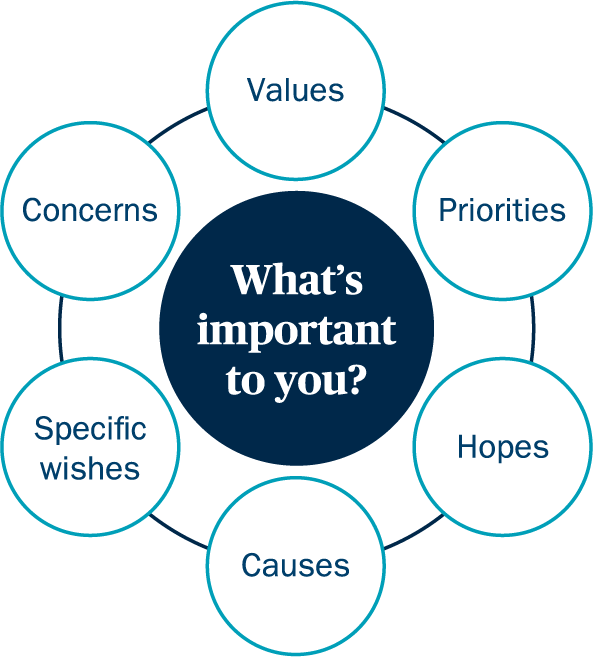How to talk about estate planning with your loved ones
Learn what goes into having a successful and productive estate planning conversation.

An effective estate planning discussion with loved ones can create transparency and trust as you move toward achieving your legacy goals. It gives you the opportunity to explain your decision-making process and how it connects to your values.
An Ameriprise financial advisor will help you plan for and facilitate the estate planning discussion when the time comes.
Here’s an approach to creating a healthy family estate planning conversation:
In this article:
- Decide who should be part of the conversation
- Establish how you want to explain your goals and values
- Have an agenda
- Look for ways to draw people into the discussion
- Consider bringing in help
- Questions to ask your Ameriprise financial advisor
1. Decide who should be part of the conversation
Carefully select and invite those who should attend. This can include your loved ones, heirs, as well as the person you’ve chosen (or plan to ask) to be your executor or trustee. Also consider including a financial advisor as a facilitator to help structure a productive discussion.
Advice spotlight
To help minimize confusion, invite anyone who may be impacted (or surprised) by your estate planning conversation. This will allow you to directly answer questions about your thought process and potentially prevent future challenges to your estate.
Learn more: How to choose an estate planning team: Attorneys, trustees and executors
2. Establish how you want to explain your goals and values
This is an opportunity to clearly articulate the financial goals and values that have informed your plan — and explain the reasoning behind your decisions. These questions may help guide the discussion:
- What are your values concerning money and where did they come from?
- What are your biggest priorities in an estate plan?
- What are your greatest hopes and most significant concerns about what happens to your estate?
- What are the causes, charities or philanthropic endeavors you care about most?
- Do you have specific wishes with how your beneficiaries use their inheritance?
- Do you have any concerns about your heir’s ability to manage their inheritance?

Learn more: Estate planning and charitable giving: Strategies to make an impact with your estate
3. Have an agenda
Defining an agenda can help prioritize the topics and issues you want to cover.
One key outcome of the meeting is to ensure the participants understand their responsibilities after you’re gone — and whether they are comfortable with their respective roles. For example, does your executor or trustee know what will be expected of them? Is the beneficiary of an investment account comfortable managing such assets?
As part of this estate planning conversation, explain the people and resources available to help and how to access them upon your passing.
4. Look for ways to draw people into the discussion
The most productive meetings are conversations. Provide plenty of opportunities for feedback and to elicit potential concerns or questions.
Here are a few questions to ask:
- Is there anything that surprised the group about the estate plan or the thinking behind it?
- Are the details of the plan clear?
- How do we avoid any unintended vagueness or messiness?
- Are there any gaps in the estate plan that need to be addressed?
5. Consider bringing in help
Regardless of your family situation and complexity of the estate, professionals can help. Your financial advisor will help you plan the meeting and facilitate the conversation, and your estate attorney can explain the legal aspects of more complicated trusts or other strategies. In particularly complex or contentious situations, it may be worthwhile to hire a professional mediator to join your advisor and attorney to help guide the discussion.
One of your clients has some questions they would like to discuss with you at your next meeting.
warning Something went wrong. Do you want to try reloading? Try again
When you’re ready to reach out to an Ameriprise financial advisor for a complimentary consultation, consider bringing these questions to your meeting.
Or, request an appointment online to speak with an advisor.
At Ameriprise, the financial advice we give each of our clients is personalized, based on your goals and no one else's.
If you know someone who could benefit from a conversation, please refer me.
Background and qualification information is available at FINRA's BrokerCheck website.


